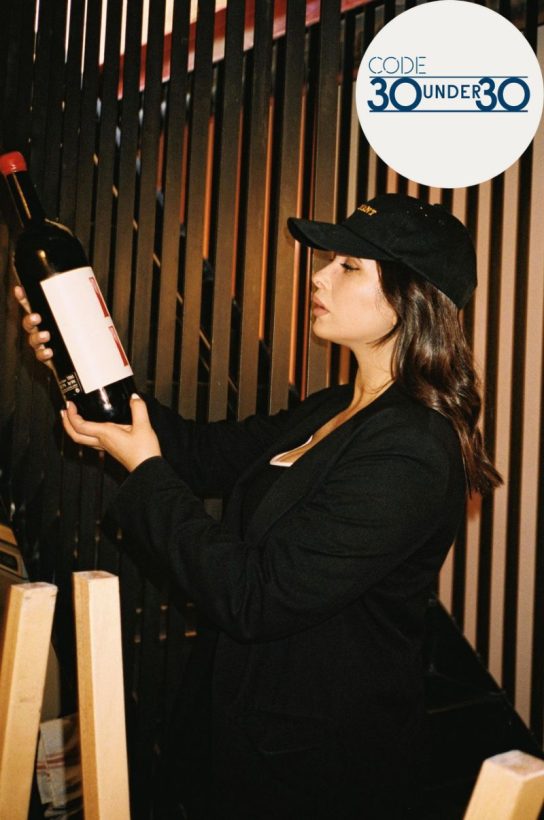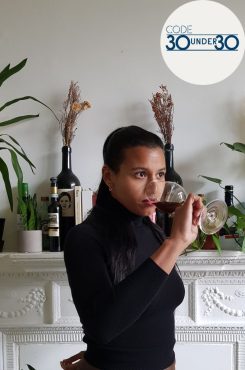Britain is entering a new and exciting age of sommeliers
Published 12 December 2022

Hannah Crosbie, founder of Dalston Wine Club
Gone are the days of tall, thin, very white sommeliers who scoff at your choices and upsell you nonsense. For the most part, anyway. The pioneering Hannah Crosbie, founder of Dalston Wine Club, brings us a flavour of a modernising trade.
For the average diner, the knackered stereotype of the snooty sommelier prevails. But while there will always be a place for intricately choreographed decanting, the rise of the casual bistro necessitates a new approach to wine. Enter a new generation of sommeliers: a new wave of wine professionals who are redefining their roles and rethinking how we talk about wine.
The wine industry has been in much need of a shake-up: the latest Diversity in Wine Survey found a ‘significant lack of diversity’ in the wine trade. Indeed, 45 per cent reported either one or no individuals from a BAME background on their team. Many expressed dissatisfaction with the ‘’white male’ status quo in the trade’, describing it as ‘cliquey and unwelcoming to those of different backgrounds’.
But this new generation is proving you don’t need a family cellar full of Lafite or WSET Level 43 to work in wine – you just need a fascination with it. Chardonné Cooper, sommelier at Planque, recalls the moment she first fell in love with wine.
‘When I worked in fashion PR, I would go to some seriously boring press meals,’ she recalls. ‘But one night, I was completely bewitched by our sommelier. His knowledge and charisma brought a whole new level to service I’d never considered before.’
Cooper decided to pursue a career in wine herself, despite not knowing any other women her age working in the industry. ‘It only made me more determined to become a part of it’, she said.
Like many other young sommeliers, Cooper brings a fresh pair of eyes to the industry, and a desire to communicate in an entirely different way to her predecessors – esoteric language is often a barrier between an uninitiated diner and a good bottle.
Zoé Donadio, the assistant general manager and sommelier at Apricity, says: ‘There’s been a big effort among us to demystify the language around wine.
‘It seems like you’re oversimplifying, but ironically, it’s much more difficult to distil a complex notion into something that’s easy to understand.’
If there’s one thing millennials care more about than accessibility, it’s sustainability, which has now become a major tableside conversation point when serving wine.
‘I love how viticultural practices are now a huge part of the decision-making process,’ Cooper says. ‘It’s just another way we create these wider stories about the wine and the winemaker, rather than subjective tasting notes.’
It’s also hard to ignore the parallels between the rise of natural wine and that of the young sommelier. It is, after all, the avenue many have used to get into the business.
‘When natural wine got popularised, more young people were consuming it and it gave us an opportunity to talk about wine in a totally new way,’ Donadio explains.
‘There’s so much colour and fun in natural wine, even down to the labels. I think we bring that same approach to how we present wine, and it really resonates.’
Simply put, long as this natty-wine-loving generation continues to dine out, we will need for young sommeliers. And even despite a looming cost of living crisis, millennials are spending 44 per cent of their total food spend on eating out. This last point feels incredibly counterintuitive.
‘Most of them know that they’re not going to be able to buy a house,’ Cooper laughs. ‘So you might as well buy something delicious.’
It’s a kind of gastronomic nihilism I can most certainly get behind.
This article was updated on 13 December




